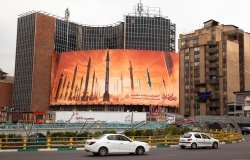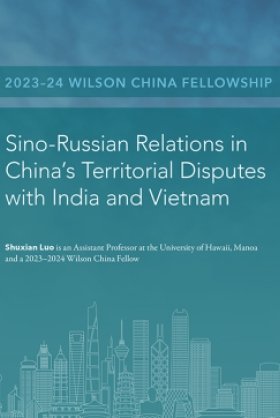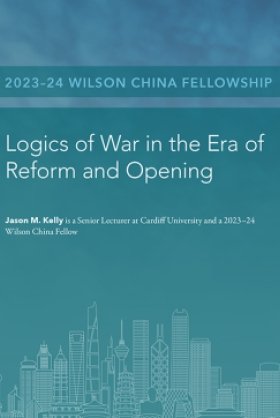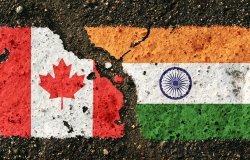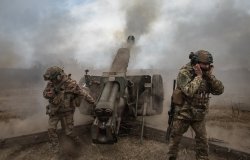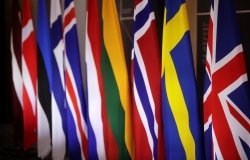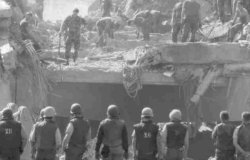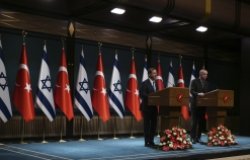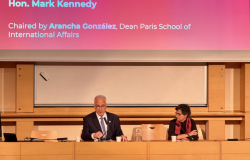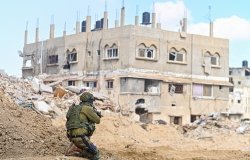Jordan’s Wartime Elections
Jordanians are set to elect a new parliament on September 10, facing economic strain and fears of an Israel-Iran conflict. Amidst apathy, reformists push for political change, while the Islamic Action Front seeks to capitalize on anti-Israel sentiment fueled by the war in Gaza.
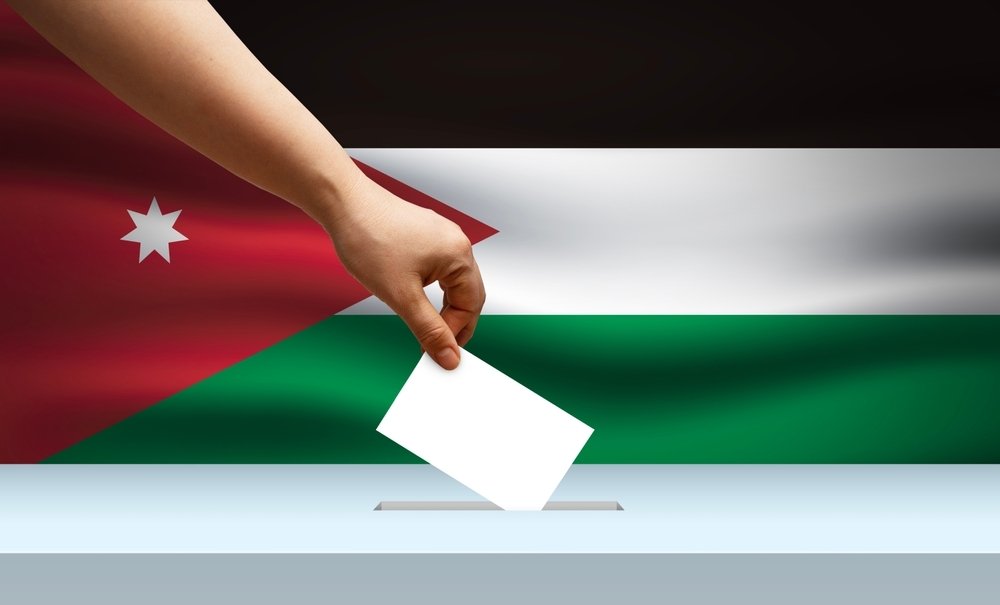
Shutterstock.com/CHONRI510
Jordanians are heading to the polls on September 10 to elect a new parliament under unprecedented conditions. The war in Gaza is dragging down both people’s spirits and the economy; the threat of an Iranian-Israeli military escalation puts the kingdom at risk of rockets falling on Amman again, while anger and protests over Jordan’s peace treaty with Israel are at an all-time high.
For the first time since parliament was reintroduced in 1989, 41 seats out of the 130-seat lower house are being reserved for political parties to loosen the stranglehold of tribal and familial politics on the legislative body.
Amid apathy and apprehension, electoral authorities hope turnout improves on previous 2020 polls that saw a record-low 29.9% of the 4.64 million eligible voters cast their ballot.
It’s the economy
Despite a nationwide focus on Gaza and fears of an Iran-Israel confrontation, foreign policy is not on the ballot. This is largely due to 2022 parliament-stamped constitutional amendments that created a monarch-chaired National Security Council, which placed foreign policy and national security matters under the purview of King Abdullah himself, away from parliament.
With royal matters off-limits for debate and in the wake of a series of arrests of pro-Palestinian, anti-Gaza war protesters and social media users criticizing the kingdom’s ongoing relations with Israel and policies regarding Gaza, few are willing to discuss Jordanian foreign policy.
Instead, one subject on everyone’s lips from election gatherings to casual conversations: the war in Gaza and the economy as an intertwined, singular issue dragging down households.
Economically, one of the major casualties in Jordan is its tourism sector, which accounted for 14.6% of GDP in 2023 and is the main employer in multiple regions.
In the wake of October 7, Jordan saw a 65% cancellation of bookings in the fourth quarter of 2023—peak tourism season—while Jordan’s inbound tourism operators reported a 93% cancellation rate for the first quarter of 2024. As of late summer, 28 hotels have shuttered in Petra, Jordan’s most visited tourist site, which received a record-high 1.17 million visitors in 2023.
Meanwhile, Houthi retaliation and Red Sea insecurity have impacted trade through Jordan’s port of Aqaba with national exports down 4.1% from January through May.
Amid the uncertainty, many Jordanians are facing a liquidity shortage and are struggling to rent or sell property and vehicles, or start businesses. For-sale and for-rent signs dot the capital of Amman. Nationwide unemployment stood at 21.4% as of June.
Mounting Israel-Iran tensions are worsening the kingdom’s economic outlook, 2024 fall tourism season, and consumer confidence.
Jordan’s location in the center of the flight path of Iranian and Houthi drones and missiles heading to Israel—Iranian missiles fell in Amman in April—has led both budget and major commercial airlines to suspend flights to Amman multiple times. Most recently on August 21, five airlines, including United, Lufthansa, and Austrian Airlines, suspended flights to Jordan in the wake of a potential Iranian retaliation over Israel’s August assassination of Hamas leader Ismail Haniyeh in Tehran—a suspension up for renewal on September 15.
Despite the economy being a central issue, the independent and businessmen candidates who dominated the previous parliament are not offering up concrete economic policies in their re-election campaigns and instead boasting slogans of “growth” and “dignity.” Many only rely on their names to promote familial and tribal ties for victory.
Reformists’ plea
Jordan's secular and liberal opposition, meanwhile, is trying to jolt apathetic Jordanians to "vote for change" by linking the kingdom's economic woes to the lack of political reform.
Jordan’s Labour Party is depicting the election as a fleeting opportunity to push back against “reactionary forces” within the state that have undermined and prevented political reform and widening political participation as called for by the king—and recommendations by a royal political reform committee that have not been implemented.
The amended law has been used to target critics of Jordan’s policies on Gaza and its peace treaty with Israel.
These reformist parties and coalitions are making free speech a central campaign issue and have vowed to amend the Cyber Crimes Law—which, under government-supported amendments passed in parliament in fall 2023, gives the state the ability to criminalize nearly any and all online speech. The amended law has been used to target critics of Jordan’s policies on Gaza and its peace treaty with Israel.
The Democratic Current Coalition vows to introduce laws granting greater freedom for unions and wider rights for workers to organize—four years since Jordanian authorities dissolved the teachers’ union, the largest professional body, and violently cracked down on educators protesting the move.
These movements have posted signs across the capital warning citizens "Your silence is dangerous, vote for change" and are aggressively pursuing the youth vote.
Yet reformists’ plea to youth appears to be barely making a dent on Jordanian social media, drowned out by the countless videos of Gazan victims and survivors and Hamas militants flooding Jordanian Twitter, Facebook, and TikTok.
Muslim Brotherhood eyes gains
By far the party eyeing the largest Gaza war gains is the Islamic Action Front (IAF), the conservative Islamist opposition party which, through its mother organization the Muslim Brotherhood, has long enjoyed organizational and ideological ties to Hamas.
The IAF is looking to bounce back from a poor 2020 showing which saw its coalition lose five seats, from 15 to 10, a result it and independent observers attribute to a previous election law that favored independent candidates over political parties and unequal distribution of seats disadvantaging Amman, the IAF’s base.
Now with the war in Gaza weighing down Jordanians and the economy, the IAF is running on its historic platform—the Palestinian cause—and is hoping to leverage the new party seats quota to ride a wave of popular anger to a plurality in parliament.
In candidate speeches and interviews posted on social media, the IAF and Brotherhood are highlighting its historic opposition to the Jordan-Israel peace treaty and normalization—opposition that began before the 1994 Wadi Araba accords were even drafted—leaning on a wedge issue it has consistently used to depict the Jordanian state and governments as denying the will of the public.
But rather than play up its historic ties to Hamas, the IAF and the Brotherhood are framing the war in Gaza and spiraling violence in the West Bank as a threat to Jordan’s national security and stability.
In their campaign, the IAF is promoting itself as a “defender” and “protector” of Jordan, a bulwark against what it cites as a far-right Israeli “plot” and “aggression” that extends the boundaries of Israel and the Occupied Territories to target Jordan itself.
In stump speeches, candidates are citing far-right settler attacks and forced displacement of Palestinians in the West Bank and the statements and complicity by far-right Israeli cabinet ministers and MKs as proof of a wider, state-sponsored Israeli strategy to push West Bank Palestinians into Jordan. They too are highlighting National Security Minister Itamar Ben-Gvir’s calls for Jewish prayer and support for building a synagogue on Al Aqsa Mosque/Temple Mount as Israel rips up Jordan’s and King Abdullah’s custodianship over Al Aqsa, one of Islam’s three holy sites. In their campaign, the IAF is promoting itself as a “defender” and “protector” of Jordan, a bulwark against what it cites as a far-right Israeli “plot” and “aggression” that extends the boundaries of Israel and the Occupied Territories to target Jordan itself.
The war in Gaza has breathed new life into the Jordanian Brotherhood by providing an opportunity to square the circle that has long prevented it from widening its base: appeal to Jordanians of Palestinian origin while also appearing as a nationalist Jordanian movement defending the homeland, all the while downplaying its divisive Islamist ideology.
The Islamists are bolstering this nationalist-pro-Palestine hybrid narrative by fielding electoral lists that include candidates from both East and West Bank origins and Christian, Chechen, and Circassian minorities.
This month’s results will illustrate how the Israel-Hamas war in Gaza, and the threat to Jordan’s stability, is shaping the kingdom’s politics.
The views represented in this piece are those of the author and do not express the official position of the Wilson Center.
About the Author


Middle East Program
The Wilson Center’s Middle East Program serves as a crucial resource for the policymaking community and beyond, providing analyses and research that helps inform US foreign policymaking, stimulates public debate, and expands knowledge about issues in the wider Middle East and North Africa (MENA) region. Read more


